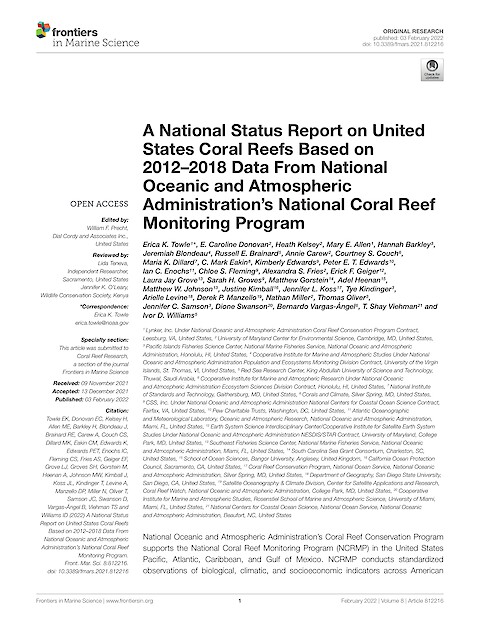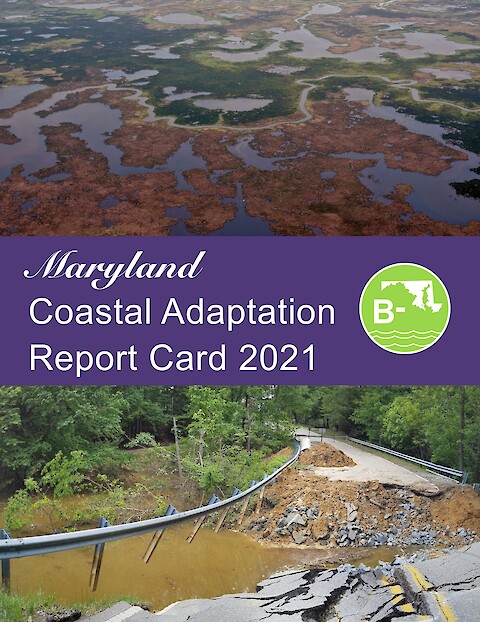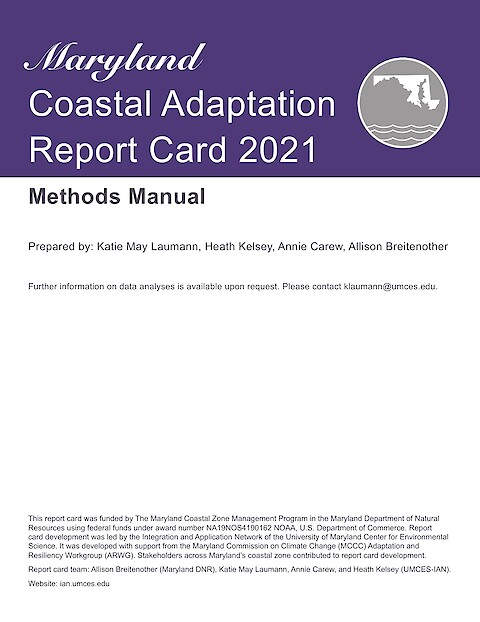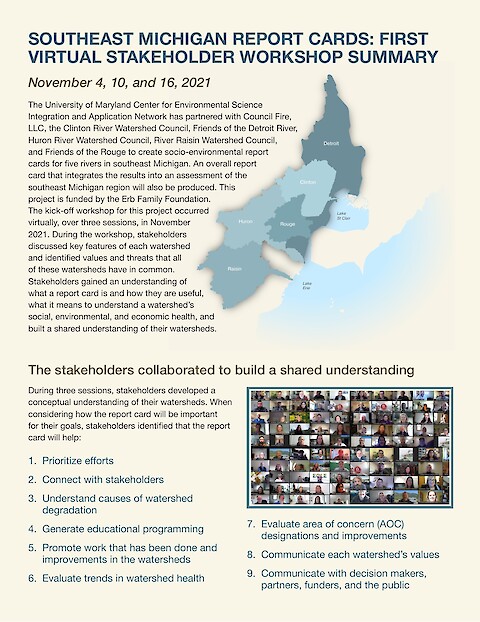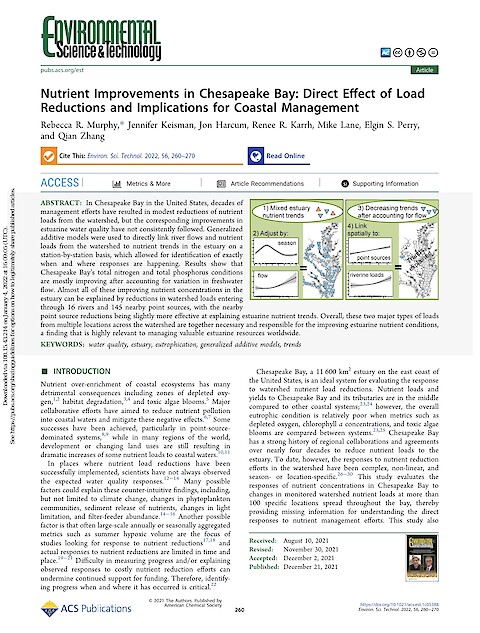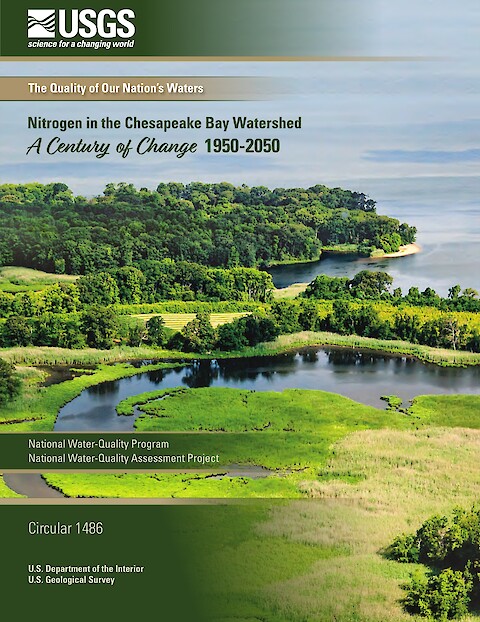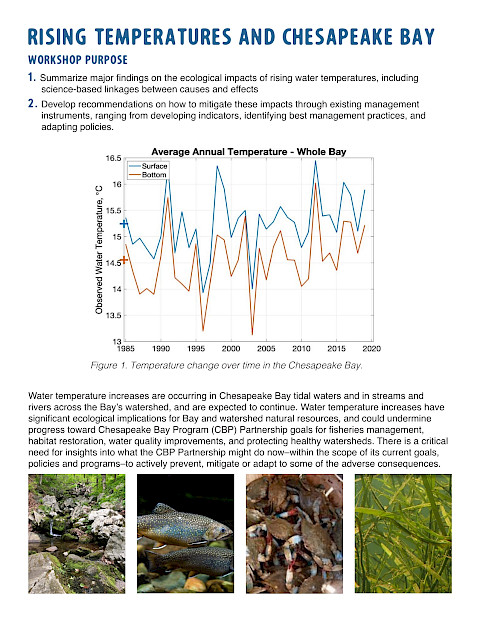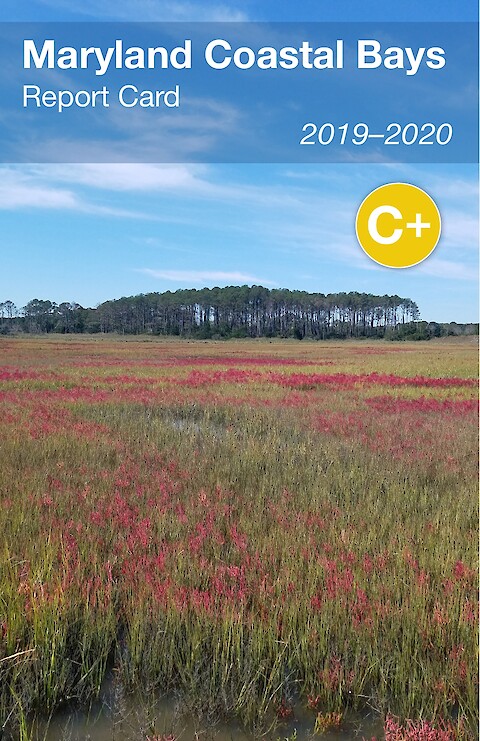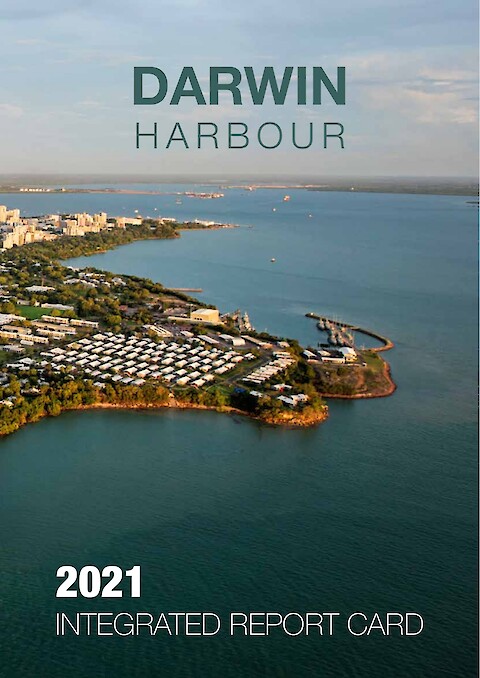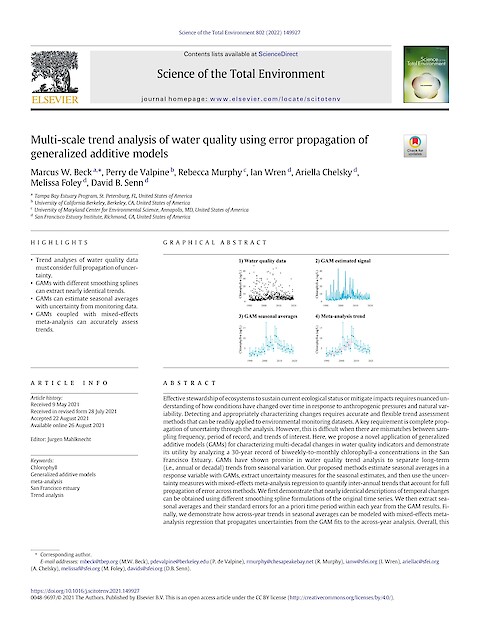A National Status Report on United States Coral Reefs Based on 2012–2018 Data From National Oceanic and Atmospheric Administration’s National Coral Reef Monitoring Program
Towle EK, Donovan EC, Kelsey RH, Allen ME, Barkley H, Blondeau J, Brainard RE, Carew A, Couch CS, Dillard MK, Eakin CM, Edwards K, Edwards PET, Enochs IC, Fleming CS, Fries AS, Geiger EF, Grove LJ, Groves SH, Gorstein M, Heenan A, Johnson MW, Kimball J, Koss JL, Kindinger T, Levine A, Manzello DP, Miller N, Oliver T, Samson JC, Swanson D, Vargas-Ángel B, Viehman TS and Williams ID ·
2022
National Oceanic and Atmospheric Administration’s Coral Reef Conservation Program supports the National Coral Reef Monitoring Program (NCRMP) in the United States Pacific, Atlantic, Caribbean, and Gulf of Mexico.
Read more


